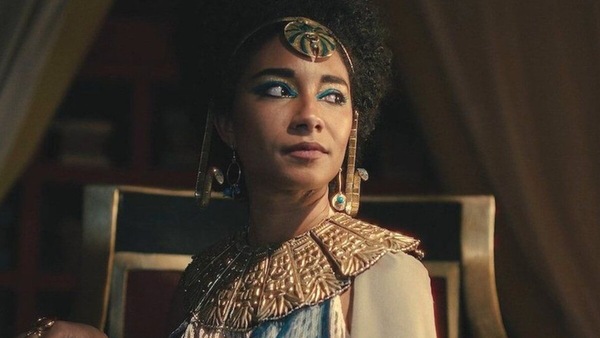Queen Cleopatra review: This one seems more like a drama series and less like a documentary
The four-episode Netflix docudrama, starring Adele James, attempts to humanise one of our most prolific female rulers, Cleopatra

Queen Cleopatra
Last Updated: 04.42 PM, May 10, 2023
Story: "Queen Cleopatra" is about Cleopatra, the world’s most famous, powerful, and misunderstood woman. A daring queen whose beauty and romances came to overshadow her real asset: her intellect. Cleopatra’s heritage has been the subject of much academic debate, which has often been ignored by Hollywood. This series aims to reassess this fascinating part of her story.
Review: When one thinks of Cleopatra, a specific image tends to come to mind: that of a fair, slim woman dressed in white robes with a short bob and elaborate makeup, bathing in a tub full of milk. "Queen Cleopatra", however, attempts to change that image.
Each of the four episodes is roughly 40 minutes long. While the audience gets to see a dramatised recreation of Cleopatra’s life, they also get to hear from historians in an interview setting in between the scenes, giving information about what is to come. Sometimes this works, but at others, it seems rather jarring and unwelcome.
There was a huge buzz when Netflix released the teaser for "Queen Cleopatra" due to her race. Although taken out of context in the teaser, the line "Cleopatra was black" sparked controversy, especially in Egypt, with many calling for the docuseries’ ban online after feeling that it distorted Egyptian history.
This might have sparked quite an interest in the documentary, with many waiting to see what it is all about. Unfortunately, it isn’t the most engaging documentary made on Cleopatra because, honestly, it feels more like a dramatised series than a documentary. The fact that even the academics interviewed for the docudrama mostly use guesswork and even sound like Cleopatra fans makes one feel like what was promised has not been delivered.
Executive producer Jada Pinkett Smith delivers the narration for this docuseries, but one wonders if, if she were more involved in the show, the output might have been different.
It is interesting to note that during Cleoptara’s reign, Egypt’s population was multicultural and multiracial. Cleopatra’s own race was not documented, since the identities of her mother and paternal grandparents aren’t known. Add to this the fact that her body was never found, and one can only speculate what her race was.
And this is what the academics also offer in the documentary. While the African American academic Professor Shelley P. Haley says that, like her grandmother, she pictures Cleopatra as black, Dr. Islam Issa says he imagines the Queen as having the same pale brown skin and curly hair as he does.
While Cleopatra’s race has been the talking point, this documentary is more than just about that. It is about her life as the last pharaoh of ancient Egypt.
"Queen Cleopatra" aims to show audiences the many different parts of Cleopatra’s life: from a 17- or 18-year-old who takes over the throne jointly with her brother Ptolemy XIII (who she marries), to her rise as the last pharaoh, how she was depicted by the Roman Senate as being an evil, cunning woman, and finally her downfall and death by suicide.
Adele James, a mixed-race actor, has done a commendable job in playing Cleopatra, although at many points she didn’t have a strong star cast supporting her or dialogue that did much to lift her performance.
She manages to pretty much single-handedly keep interest in the docudrama alive through her nuanced performance. Adele manages to successfully bring alive the power of Cleoptra and portray her as the force of nature that she was.
Verdict: As mentioned earlier, this is more of a drama and less of a documentary, so it might seem like a fairly decent investment of time for those who know little to nothing about Cleopatra. It is unfortunate that so much of the documentary makes it seem like almost all of Cleopatra’s choices were about seducing men, considering that huge portions focus on her love life rather than her intellect, cunning, and strong-willed nature. The audience doesn’t even really get to know what Egypt was like at the time of her rule.
Some more attention paid to the dialogue and casting of the other characters would have helped make this a more interesting watch. Or perhaps the makers decision to make this a dramatised series instead of trying to plug in a serious documentary time and time again might have worked to their advantage.
WHERE
TO WATCH
Subscribe to our newsletter for top content, delivered fast.
